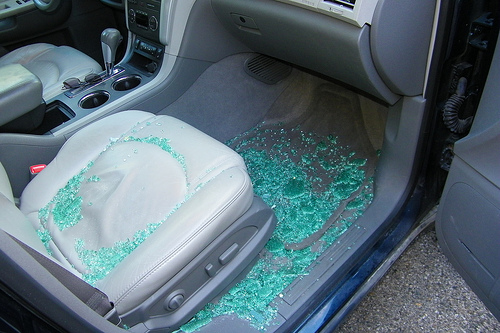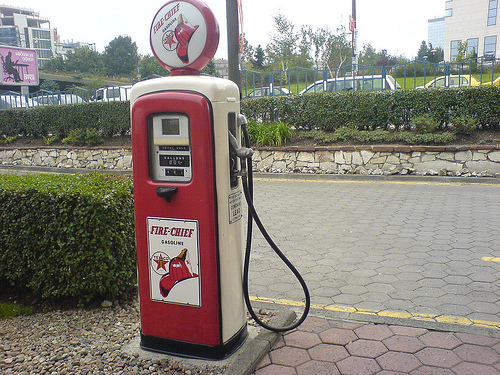
Ford could soon become the first car manufacturer in the world to use robotic technology for conducting durability tests on new vehicles. The company has launched a pilot program under which it is using a next generation driverless car technology from Utah-based Autonomous Technologies Inc. for high-impact durability testing of the 2014 Ford Transit commercial van. The tests are being conducted at the automaker’s Michigan Proving Grounds facility. If they prove successful, Ford could soon begin using robotically driven cars for durability tests at its other facilities as well.
Robotic Control
Ford’s technology is somewhat similar in concept, but different in purpose, to the autonomous vehicles being developed by companies like Google and Toyota. It consists of a fully programmable robotic control module, a ring gear that hooks to the steering wheel, a servomotor for controlling the gears and several sensors for controlling gear shifts, braking and acceleration, The control module can be programmed to steer the vehicle through a specific test course at the Ford test track in Michigan. Ford engineers can track the test vehicle’s movements through a high-bandwidth link from a central command center. They have the ability to instantly stop or steer the vehicle if it veers off course by even a little. The control mechanisms can be installed in less than 45 minutes without any changes to the vehicle’s interior.
Extreme Testing
Over the next several months, Ford will repeatedly test drive a robotically controlled Ford Transit van over a variety of different surfaces at its Michigan Proving Grounds facility. The tests are designed to simulate over 10 years worth of daily driving and will conducted on a variety of different surfaces including cobblestones, broken concrete, rough gravel, speed bumps and metal grates. According to Ford, robotically driven cars will be able to perform such arduous durability tests far more efficiently and safely than human testers. Robotic cars for instance, can be programmed to indefinitely repeat a battery of tests over especially dangerous conditions while human drivers are limited in their ability to do so because of safety and legal restrictions, according to Ford. Robotically controlled cars can also be programmed to run tests on a round-the-clock basis thereby shortening the length of time needed to complete a full suite of durability tests, the company has noted.
Similar, Yet Different
Though Ford’s robot-test vehicles are similar in function to a self-driving car, they are not designed to autonomously navigate through streets and open roadways. Instead, they are meant specifically to operate on a closed circuit test track. The sole objective in developing the autonomous car technology is to create a solution that will let Ford conduct intensive durability tests on new vehicles in a safer and quicker manner than possible until now. Importantly, the robotic technology will also allow Ford to redeploy its human test drivers to other tasks thereby improving productivity as well.




